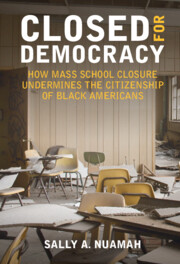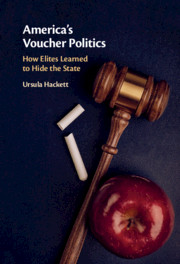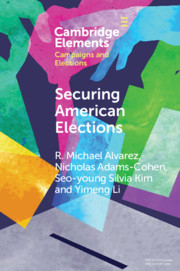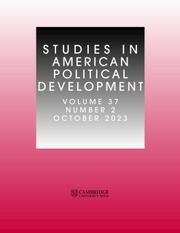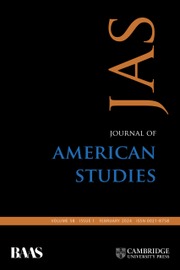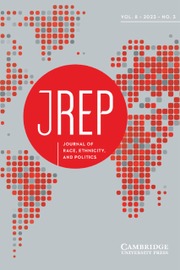Closed for Democracy
Every year, over 1,000 public schools are permanently closed across the United States. And yet, little is known about their impacts on American democracy. Closed for Democracy is the first book to systematically study the political causes and democratic consequences of mass public school closures in the United States. The book investigates the declining presence of public schools in large cities and their impacts on the Americans most directly affected – poor Black citizens. It documents how these mass school closure policies target minority communities, making them feel excluded from the public goods afforded to equal citizens. In response, targeted communities become superlative participators to make their voices heard. Nevertheless, the high costs and low responsiveness associated with the policy process undermines their faith in the power of political participation. Ultimately, the book reveals that when schools shut down, so too does Black citizens' access to, and belief in, American democracy.
- Combines interview data with quantitative data and ethnography to help readers engage with statistical evidence more accessibly
- Merges political science literature with the voices of well-known Black political activists
- Situates contemporary school closure policy within a historical context to demonstrate the longstanding impact on low-income, Black communities
Reviews & endorsements
‘Public schools are the cornerstones of urban communities. They educate children, ensure child welfare, and strengthen social and political engagement. In Closed for Democracy, Nuamah offers a sobering account of what happens to political life in under-resourced minority communities when public schools are closed. The book is well researched, timely, and a must-read for anyone interested in understanding the race and class implications of policy feedback.’ Ismail K. White, Professor of Politics and Public Affairs, Princeton University, and co-author of Steadfast Democrats: How Social Forces Shape Black Political Behavior
‘… Leveraging and extending theories about policy target groups and feedback, Nuamah meticulously shows the emotional, intellectual, and physical labor of political participation. By examining what happens when Black residents mobilize inside structurally unequal and racist systems, Nuamah raises important questions about the meaning and future of democracy.’ Mara Sidney, Professor of Political Science, Rutgers University - Newark, and co-author of Multiethnic Moments: The Politics of Urban Education
‘In 1951, Langston Hughes' poem ‘Harlem’ began with the question ‘What happens to a dream deferred?’ In Closed for Democracy, Sally Nuamah answers powerfully and provocatively. Figuring out how to repay the collective participatory debt experienced by Nuamah's subjects is a question we must answer if we are to create a more perfect union.’ Lester Spence, Professor of Political Science and Africana Studies, Johns Hopkins University, and author of Knocking the Hustle: Against the Neoliberal Turn in Black Politics
‘Today, long-time conservative assaults on American public institutions are at a fever pitch, with public schools a prime target. Using vivid ethnographic and statistical data, Sally Nuamah shows brilliantly how these battles are deepening disillusionment with American democracy, especially among America’s often embattled citizens of color.’ Rogers M. Smith, Christopher H. Browne, Distinguished Professor of Political Science, University of Pennsylvania
‘Closed for Democracy is a rigorous and compelling account of the costs of participation for Black citizens in US democracy, given the continued lack of responsiveness to their needs. As Nuamah shows, even when Black citizens ‘win’ policy battles, they lose. This is a must-read for anyone interested in political loss, public things, democracy-building, Black political behavior, and educational policy.’ Juliet Hooker, Professor of Political Science, Brown University, and author of Theorizing Race in the Americas: Douglass, Sarmiento, DuBois and Vasconcelos
'Drawing on novel survey data, in-depth qualitative interviews, analyses of community meetings, and years of field work, Nuamah brilliantly documents the lengths to which Black residents organized to prevent the closure of hundreds of neighborhood public schools in Chicago and Philadelphia over the past decade … Closed for Democracy’s persuasive analysis of the complex consequences of school closures offers an exemplar study of policy feedback in the context of education policy.' Matthew D. Nelsen, The Journal of Race, Ethnicity, and Politics
‘Policy feedback scholars will find Closed for Democracy useful because the book demonstrates how racialized education policies have broader import for both nonelectoral and electoral participation, widening the scope of political outcomes of interest beyond the voting booth. Scholars of racial and ethnic politics (REP) and urban studies, too, will find significant value in Nuamah’s book … Overall, Nuamah’s book is sure to spark debate among REP scholars and stimulate broader discussions regarding the contemporary state of Black citizenship.’ AJ Rice, Perspectives on Politics
Product details
December 2022Hardback
9781009247450
240 pages
235 × 159 × 18 mm
0.49kg
Available
Table of Contents
- Introduction Closed for school, open for Business: When citizens become targets in the era of mass school closures
- 1. What targeted citizens Think: Racial differences in public opinion on school closures
- 2. Who targeted citizens Blame: Blame, approval, and black power
- 3. How targeted citizens fight back: Participating while poor and a minority in the policy process
- 4. Who wins and who loses in the era of mass school closures?: Toward a theory of collective participatory debt
- Conclusion closed for school, closed for democracy: Why closing schools undermine democracy
- Epilogue Close to home
- Bibliography
- Appendix.

